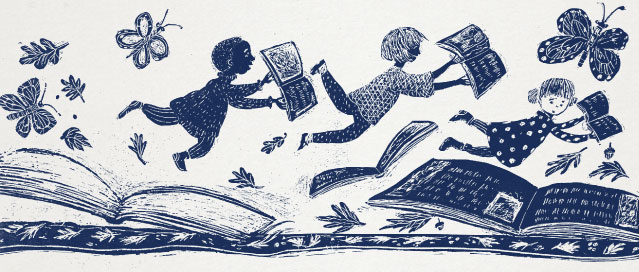
On Conflict and Literary Diplomacy
Conflict, a notion which is constantly studied in disciplines of Political Science and International Relations, has the utmost importance in analyzing relations between societies. I believe that only through a careful consideration of what is conflict and what kind of dynamics it involves we can acquire conciliation and permanent peace.
Most of the studies about conflict focus on the conflict between authority and individual, and specifically the legitimate use of power of the authority against the liberty of the individuals. Recently, I figured that the illegitimate use of force by authority is not only in the form of physical oppression (via means of law enforcement etc.) but can take a more abstract form in affecting how the reality of individual is shaped. By this specific use of force, authority indeed can address hostilities and influence the conciliation process of a problem which has international dimensions. This use of force can even make the individual internalize the system of thought that he/she is exposed to. Much like the Freudian thought of internalizing the outside notions of morality imposed by the family or society, the individual can obtain what is taught to him/her by state and consider it as a personal conviction.
In the past, I preferred to not think over the Armenia-Turkey relations and Armenian Genocide. As the principal stance of state has been effective for decades, even my family or my teachers were not that talkative in these contexts and in the most optimistic scenario, people would admit that there were massacres in Anatolia but held the view that saying they amounted to a genocide is not true (even Bernard Lewis, an academically well-known figure argued for this view). I was aware of the conflict between two nations but as I lacked any opportunity of communication with an Armenian friend, I was complacent and did not try to make a research about what happened. I was not aware of the fact that a conciliation should be reached and unless we reach it there is no way of coming to the terms with our past. I had held the view of the people with whom I shared a class, a house and a country.
I think it is the way how societies have been led in the last hundred years. Memories are re-written by states and through this, any chance of communication is prevented. We fight with the ghosts in our mind, avoiding the chance to keep in touch with reality.
Here, literary diplomacy comes into effect. Thanks to what I experienced during the entire program and the panel we had in the bookstore in Yerevan, I perceived the necessity of this type of diplomacy and believe in it now. This is because I am convinced that literature is where the communication is in its purest form. In literature pain is protected, human values are cherished, and prejudices along with taboos are questioned. Literature is the best instrument to accommodate conflict, as well as the best one to understand and solve it. In an era where people are fed up with dry and demagogical political statements, literature as a form of art is the one which can reach beyond the frontiers and solve political conflicts. It is what can always stay fresh and influential despite the ever-changing policies which mess up the current situation in order to create new conditions that are deemed proper by political views which are vulnerable to changing economic and international circumstances.
In the last week, I had the opportunity to meet great people. They are from Armenia, Ukraine, Russia, Georgia, and my country, Turkey. They are the brilliant writers of our day, the sycamores of tomorrow. During this period we talked about literature, we shared our thoughts and as one of the great mentors here, Dato Turashvili said, ‘in a friendship made possible by literature, the war at the outside world would not exist for you.’ I think we can take ‘war’ as conflict also. If I can add to this remark, I would say that individuals who are free from daily conflicts are the ones who can solve these conflicts. As I witnessed in Dilijan, these individuals are from diligent readers and writers.
Hüseyin Serhat Arıkan
Latest posts by Hüseyin Serhat Arıkan (see all)
- Villain – November 19, 2018
- To My Dear X – November 19, 2018
- On Conflict and Literary Diplomacy – November 18, 2018





